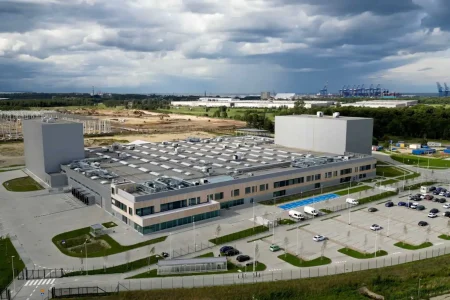Researchers at the National Research Nuclear University “MEPhI” are working on new environmentally friendly catalysts for producing hydrogen from water, as well as materials for storing and transporting this fuel.
Researchers at the university hope their findings will lead to more affordable, environmentally friendly, and safe hydrogen energy.
Hydrogen can be produced in a variety of ways, the simplest of which is electrolysis, which involves splitting water using an electric current. Solar panels and nuclear power plants, both of which do not use carbon fuel, are examples of current sources.
There is an active research effort at the NRNU MEPhI to develop new electrodes for efficient electrolysis. Creating new nanostructured materials is the only way to meet these requirements, which necessitates the use of low-cost materials.
As an example, Professor Vyacheslav Fominsky, the head of the LaPlase Institute’s Laboratory for Laser Synthesis of Multifunctional Nanomaterials at the National Research Nuclear University MEPhI, said molybdenum sulfide can be obtained from a molybdenum concentrate, which is 10 billion times cheaper than platinum, the most effective water splitting catalyst.
Amorphous clusters or ultrathin monolayer crystals, according to him, are needed to give molybdenum sulfide the same unique catalytic properties as platinum. It is necessary to deposit thin films of new nanomaterials, with a thickness of fractions of micrometers, on relatively inexpensive carbon plates in order to create highly efficient electrode.
Laboratory scientists have created a set of laser methods that allow them to precisely control the conditions under which thin films are deposited on electrodes, resulting in films of the desired chemical composition and atomic arrangement.
Scientists at the National Renewable Energy Laboratory (NRNL MEPhI) are also working on reducing the use of traditional sources of electricity and actively using solar energy. Catalytic nanomaterials with semiconducting properties allow this as well.
Hydrogen accumulating and storing
All fuels need to be accumulated and stored in some way. Hydrogen is no different. Hydrogen can be stored in three different ways, each with its own set of competing advantages (gas, liquid and solid).
High-pressure cylinders are used for the storage of hydrogen in the gaseous state, just like natural gas. An extremely low temperature is required for hydrogen to enter the liquid state. As a result of this, the volume of hydrogen that can be stored in the same volume increases significantly.
When hydrogen is added to some metals, new solid-state structures are formed. This is a third method of storage. Hydrogen is extremely dense in the resulting hydrides, with up to four hydrogen atoms per metal atom possible.
However, in many cases, solid state drives are the preferred method of data storage. Hydrogen is being studied in metals, including solid-state drives, by researchers at the LaPlaz Institute at the National Research Nuclear University MEPhI, says the laboratory’s head, Professor Alexander Pizarev, per MEPhI.
Film drives, says the expert, have the advantage of having a fast response time, which is critical in many applications. Unlike powder accumulators, which are more inert and take longer to warm up, they are heated instantly by a current passing through a thin metal layer.
The right hydrogen-active material must be selected and deposition technologies must be developed in order to create film storage devices. Employees of NRNU MEPhI deal with these issues.
The laboratory staff is hopeful that they will be able to produce some exciting results as a result of using this new equipment. The Priority 2030 program is used to conduct the research.








